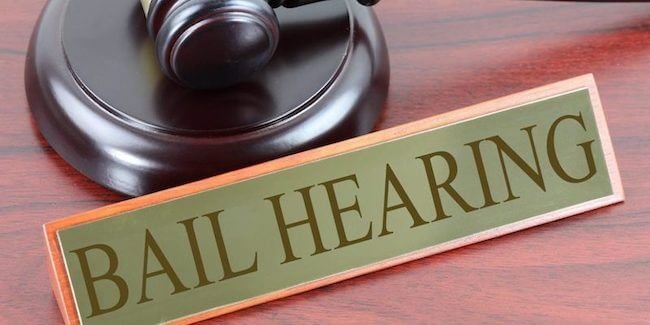What is a peace bond?
A peace bond is a court order that is designed to ensure peace. The peace bond usually requires the accused to comply with certain conditions such as avoiding communication with certain people, staying away from specific places, and not possessing any weapons. If the person fails to comply with these conditions, they can be charged with breaching the peace bond along with other charges.
There are two types of peace bonds; an S. 810 and common law. A peace bond pursuant to section 810 of the criminal code can be valid for up to one year and is a sworn information. A common law peace bond involves the presiding judge or justice exercising their common law powers to impose certain conditions on the individual charged with an assault charge. Unlike s. 810, the common law peace bond can be valid for more than a year.
When imposing peace bond conditions, the crown and court will consider the nature of the offence and whether or not it was domestic in nature. The court may also consider other factors such as the accused’s background and input from the complainant. For example, in domestic assault charges, if the complainant provides input that they wish to have contact with the accused, then the court is less likely to impose a condition prohibiting contact.
If you are considering entering into a peace bond, it is important to speak with a criminal lawyer to ensure that you fully understand the consequences and implications of doing so. A peace bond can have a number of collateral consequences which may impact family court proceedings or your employment. In certain circumstances, an experienced criminal lawyer might be able to negotiate a resolution that does not involve the accused entering into a peace bond.
What are the consequences of not following the peace bond conditions?
If a person commits a breach of a peace condition, then they can be charged with a criminal offence. The maximum punishment for breaching either type of peace bond is four years; however, the court will consider the circumstances of the alleged breach in determining an appropriate sentence. Often the first breach of a court order on an individual’s criminal record will not result in jail time; however, there can be severe consequences including a criminal record. A criminal conviction for a breach of any type of court order will also make it difficult for an individual to obtain bail in the future.
It is important to remember that breaching a peace bond can result in serious consequences, so it is best to speak with a criminal lawyer to get advice on your specific situation. If you are facing charges such as aggravated assault charges and would like legal advice, please contact a criminal defence lawyer located by your local criminal court. Many criminal lawyers offer free consultation and would be happy to discuss your options with you.
Will my charge resolve by way of a peace bond?
Typically, peace bonds are used in cases where there is not enough evidence to substantiate criminal charges but the Crown Prosecutor still believes that the accused may be a threat to society or an individual. They are typically reserved for the less serious offences which are proceeded by way of summary conviction rather than an indictable offence such as criminal assault charges, uttering threat or theft charges.
The crown considers a number of factors in determining whether or not the matter should resolve by way of a peace bond. These factors include the type of offence, personal circumstances of the accused, triable issues, the complainant’s input, and the reasonable prospect of conviction.
Can an accused avoid a criminal record in Domestic assault charges and resolve by way of peace bond?
Often, if an individual is charged with a simple assault and has no prior convictions, the matter is more likely to resolve by way of a peace bond. This is also possible if the offence involves domestic violence as long as it was not in the presence of a child and the intended victim sustained no injuries.
In domestic assault cases, the crown attorney will require the accused person to complete upfront counselling prior to entering into a peace bond. This is often referred to as The Partner Assault Response (PAR) Program. In certain jurisdictions, such as Brampton, there is a significant backlog in an accused entering into the PAR Program. As an alternative, assault lawyers can negotiate the accused completing a PAR equivalent counselling program run by a private firm which will have more flexibility in terms of schedule along with a faster completion time frame.
More serious charges such as aggravated assault, or assault causing bodily harm, are less likely to be resolved by way of a peace bond. The seriousness of these assault charges including the injuries inflicted makes a resolution by a peace bond contrary to the public interest.
It is important to have a lawyer represent you in these serious charges as they can often result in a jail sentence. For example, the maximum jail sentence for an accused found guilty of an aggravated assault is fourteen years. If you are facing serious charges such as assault with a weapon, it is important to contact a criminal assault lawyer for a consultation. The assault lawyer will be able to review your case and the particular circumstances surrounding the case and provide you with legal advice.
Does signing a peace bond constitute an admission of guilt?
Opting to enter into a peace bond does not constitute an admission of guilt or criminal responsibility. A peace bond may impact family law proceedings, however, it will not affect an individual’s criminal record. It is important to consult a family lawyer for any potential consequences.
Signing a peace bond is different than resolving assault charges through another method such as diversion. Signing a peace bond means that you agree to adhere to certain conditions. If you breach these conditions, charges can still be pursued against you by the crown.
If you are considering entering into a peace bond, it is important to speak with a criminal lawyer close to your local courthouse to ensure that you fully understand the consequences and implications of doing so.









